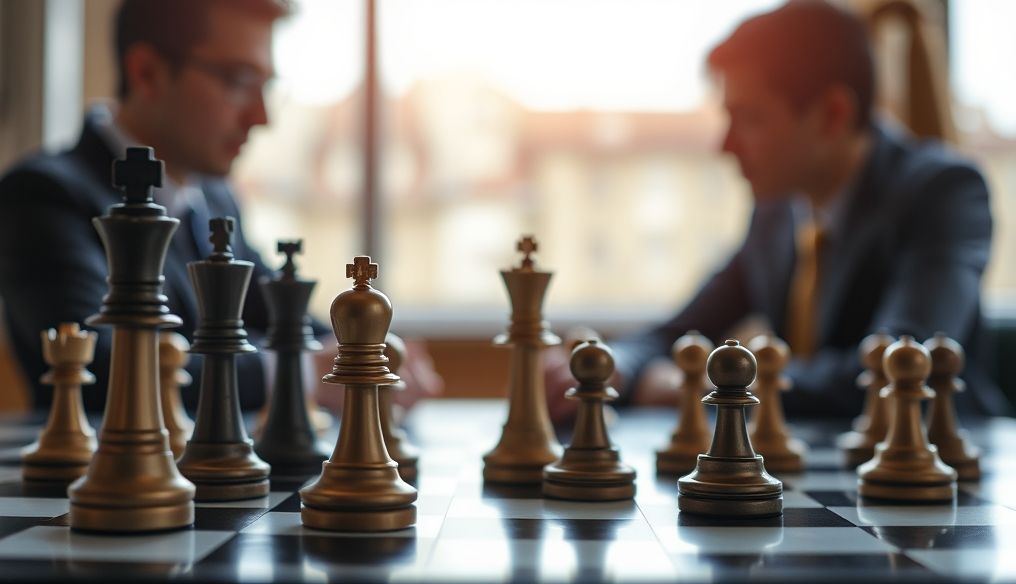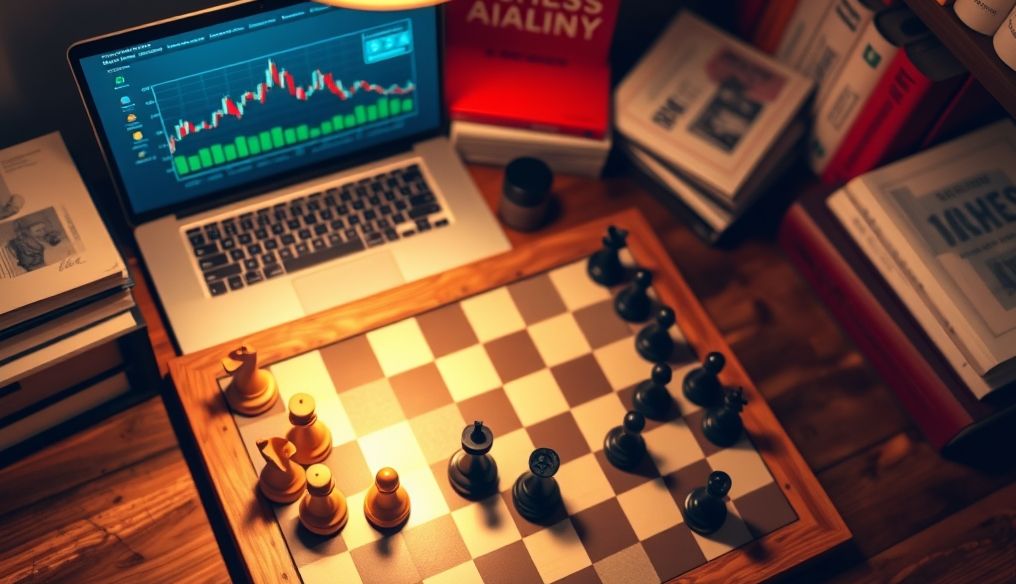How Does Chess Benefit Strategic Thinking and Improve Your Life?
Chess, the royal game, is not just a means of entertainment, but a powerful tool for developing strategic thinking. The game requires careful planning, deep analysis, and the ability to anticipate the opponent's moves, making it an excellent mental exercise. In this article, we will explore the many benefits of chess and how it can positively impact various aspects of your life.
1. Developing Critical and Analytical Thinking
Chess forces you to think critically and analytically. You must assess the current situation on the board, analyze available options, and evaluate the potential risks and rewards of each move. This process enhances your ability to:
- Analyze Problems: Break down complex problems into smaller, more manageable parts.
- Evaluate Evidence: Examine available information and assess its relevance and reliability.
- Make Informed Decisions: Choose the best course of action based on careful analysis.
Example: In daily life, these skills can help you make better financial decisions, solve problems at work, or even plan a complex project.
2. Enhancing Strategic and Tactical Planning
Chess requires long-term strategic planning and short-term tactics. You must develop a general plan to achieve your goal (such as checkmating the opponent) and execute a series of small moves to achieve this goal. This enhances your ability to:
- Set Goals: Define clear and measurable goals.
- Develop Plans: Develop strategies to achieve these goals.
- Implement Tactics: Use appropriate tactics to overcome obstacles and make progress.
Example: In business, these skills can help you develop successful business plans, manage projects effectively, and overcome competition.
3. Improving Memory and Focus
Playing chess requires intense focus and a strong memory. You must remember the opponent's moves, analyze recurring patterns, and anticipate potential outcomes. This enhances your ability to:
- Improve Working Memory: Retain information in your mind and use it to solve problems.
- Increase Focus: Reduce distractions and concentrate on the task at hand.
- Develop Sustained Attention: Maintain focus for extended periods of time.
Example: In studying, these skills can help you remember information better, focus on lectures, and complete tasks effectively.
4. Developing the Ability to Predict and Think Ahead
Chess forces you to think about the future and anticipate the opponent's moves. You must consider the consequences of each move and make decisions that will benefit you in the long run. This enhances your ability to:
- Think Proactively: Anticipate potential problems and take preventive measures.
- Analyze Scenarios: Evaluate the potential outcomes of various options.
- Make Strategic Decisions: Choose the best course of action based on future expectations.
Example: In personal relationships, these skills can help you anticipate the needs of others, resolve conflicts effectively, and build strong and lasting relationships.
5. Enhancing Creativity and Innovation
Although chess is a rule-based game, it also requires creativity and innovation. You must find unconventional solutions to problems, experiment with new strategies, and think outside the box. This enhances your ability to:
- Generate New Ideas: Come up with innovative solutions to problems.
- Think Flexibly: Adapt to changing circumstances and try different approaches.
- Solve Problems Creatively: Find unconventional solutions to complex problems.
Example: In the field of art, these skills can help you develop new styles, express yourself in innovative ways, and create unique works of art.
6. Improving the Ability to Make Decisions Under Pressure
Chess often requires making quick decisions under pressure. You must think quickly and make the right decisions in a timely manner, even when under time pressure or facing a difficult situation. This enhances your ability to:
- Manage Stress: Stay calm and focused under pressure.
- Make Quick Decisions: Make the right decisions quickly and efficiently.
- Think Clearly: Maintain clarity of thought even in difficult situations.
Example: In emergency situations, these skills can help you make critical decisions that may save someone's life.
7. Boosting Self-Confidence and Mental Resilience
Winning in chess boosts self-confidence, while losing teaches you mental resilience. You must learn from your mistakes, recover from setbacks, and keep trying until you achieve success. This enhances your ability to:
- Build Self-Confidence: Believe in your abilities and achieve your goals.
- Develop Mental Resilience: Recover from setbacks and learn from mistakes.
- Persevere: Keep trying until you achieve success, even when facing difficulties.
Example: In professional life, these skills can help you deal with rejection, recover from failure, and continue to strive for your career goals.
8. Chess as a Universal Language
Chess transcends linguistic and cultural barriers. It is a universal language understood by people from all over the world. Playing chess with people from different cultures can help you:
- Broaden Your Horizons: Learn about different perspectives and understand other cultures.
- Improve Communication Skills: Learn how to communicate effectively with people from different backgrounds.
- Build Relationships: Make friends with people from all over the world.
Example: You can join local chess clubs or participate in international tournaments to meet players from all over the world and exchange experiences.
9. Chess as an Educational Tool
Chess is a valuable educational tool that can be used to teach children and adults strategic thinking and problem-solving skills. Chess can help in:
- Improving Academic Performance: Enhancing critical and analytical thinking skills that benefit all subjects.
- Developing Social Skills: Learning how to cooperate and compete respectfully.
- Boosting Self-Confidence: Building self-confidence through achieving success in the game.
Example: Many schools and universities use chess as part of their curriculum to teach students strategic thinking and problem-solving skills.
10. Tips for Making the Most of Chess
To make the most of chess and develop strategic thinking skills, here are some tips:
- Learn the Basics: Start by learning the rules of the game and its basic strategies.
- Practice Regularly: Dedicate regular time to play chess and improve your skills.
- Solve Puzzles: Solve chess puzzles to enhance your critical and analytical thinking skills.
- Analyze Your Games: After each game, analyze your mistakes and learn from them.
- Play with Better Players: Challenge yourself by playing with better players to learn new strategies.
- Enjoy the Game: Remember that chess should be fun. Enjoy the process and learn from every experience.
In conclusion, chess is not just a game, but a powerful tool for developing strategic thinking and improving various aspects of your life. Whether you are a beginner or an experienced player, you can benefit from the benefits of chess through regular practice and continuous learning. Start today and discover how chess can improve the way you think and make decisions.




